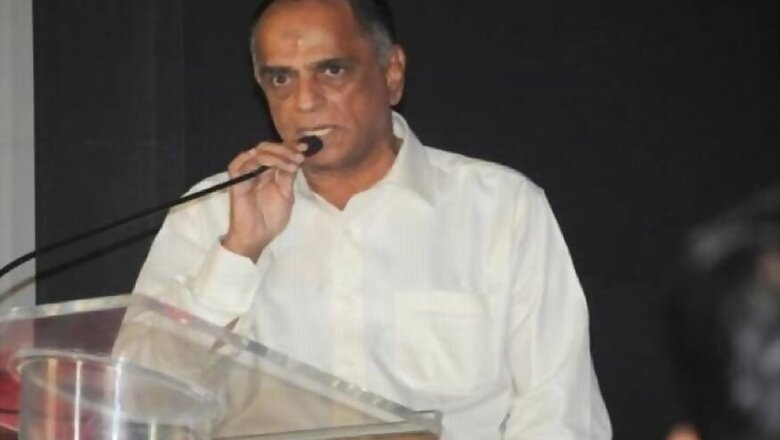
views
The Central Board of Film Certification (CBFC) may seek Union Minister Uma Bharti’s advice before taking a decision on Padmavati. Days before the Censor Board said that they will consult historians over the accuracy of Sanjay Leela Bhansali's Padmavati, the minister had suggested that the CBFC form a committee with historians, the filmmaker and the protestors.
The CBFC chief Prasoon Joshi has said that the board will take a “balanced decision” after consulting “specialists”.
Pahlaj Nihalani, the former CBFC chief, who was known for his prudish views often leading to gagging of freedom of filmmakers, says while the board is allowed to get experts, the final decision lies with the board.
“This is the job of the panel members who have been nominated by the government. Delaying the decision is shying away from their job,” Nihalani told News18 in an interview.
“There is no if and but, approving the film is the responsibility of the censor board, not public or the government,” he added.
“I have never done something like this in my tenure. I have never delayed a film. Small or big, all films are important to the CBFC,” he said. Nihalani said that had he been the chief, he would not have delayed the release of the Bhansali film.
The Censor Board certifies films as per the Cinematograph Act, 1952, and Certification Guidelines 1991 laid down under it by the central government. Under the Act, one of the guidelines says that the board can get an expert panel to make a decision on a movie.
“For the purpose of enabling the Board to efficiently discharge its functions under this Act, the Central Government may establish at such regional centres as it thinks fit, advisory panels each of which shall consist of such number of persons, being persons qualified in the opinion of the Central Government to judge the effect of films on the public, as the Central Government may think fit to appoint thereto,” the Act notes.
However, the former CBFC chief is of the opinion that this cannot be a reason for the board to delay its decision.
Nihalani pointed out that a star-studded movie Chitoor Rani Padmini featuring Sivaji Ganesan and Vyjayanthimala in the lead roles was released in 1963. The Tamil film, which is described as ‘historical fiction’ narrates the familiar story of the queen and the Delhi Sultan Alauddin Khilji’s wild infatuation for her. “No question or objection was raised back then and the Censor Board cleared it,” Nihalani said.
Talking about the entire controversy around Udta Punjab where Nihalani has reportedly suggested 89 cuts, he said, “We offered to clear ‘Udta Punjab’ with an ‘A’ certificate and some cuts which we thought would not hamper the flow of the narrative.” “We didn’t waste time, thereby delaying the release date,” he added.
It may be noted here that after being sacked, Nihalani went on record to say that he was instructed by the Ministry (didn't specify which) to not clear Abhishek Chaubey's controversial drugs-drama, Udta Punjab.
Talking about how chief ministers of many states have called for a ban on the movie, Nihalani said that a film can't be banned in a state before receiving a censor certificate. “Unless certificate is not issued, no state can make 'jumlas' like 'we'll cut it' or 'we'll not let it release,” he said.




















Comments
0 comment